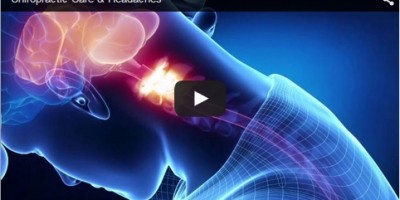The Gut Microbiome and The Gut-Brain Link
From Chopra.com – Why Microbes and Probiotics Matter to Your Health – The digestive tract works like an assembly line in reverse. Instead of creating food, the digestive tract breaks it down into basic parts to make it easier to absorb and metabolize. As efficient as the digestive tract is, a large portion of the energy stored in food is not processed and metabolized by the human body. Undigested food travels through the intestinal tract and is often fermented and metabolized by the gut microbiome, the microscopic organisms that live within the digestive tract.
These microbes have the ability to digest and metabolize the food content we cannot as well as release absorbable nutrients, metabolites, and waste products. A number of these metabolites, such as vitamin K, cannot be produced by the human body yet are critical for our survival. Other metabolites have biological activity that can influence human health and behavior. Each of the thousands of species that comprise the gut microbiome can have unique consequences on health, depending on the host genetic makeup, environment, and the other components of the microbiome.
The nerve cells and fibers within the digestive tract are known as the enteric nervous system, and are connected to the brain and central nervous system. The vagus nerve is a major cranial nerve that connects the brain and the gut, as well as other organs. The gut microbiome and diet produce and contain metabolites that communicate with the brain and central nervous system via the vagus nerve as well as by alternative routes, including the circulatory, endocrine, and immune systems.
The Gut-Brain Link
The gut is highly involved with neurotransmitters, such as dopamine and serotonin—the chemicals that allow nerve cells to communicate with each other and the body. Dopamine is a major neurotransmitter, and a deficiency can lead to Parkinson disease. While 50 percent of the dopamine in the body is found in the brain, the other 50 percent is in the gut.
Serotonin is the major neurotransmitter involved in mood, with most antidepressants designed to work by increasing its levels. Only five percent of the serotonin of the body is found in the brain; the other 95 percent is found in the gut. There are more than 30 active neurotransmitters found throughout the enteric nervous system, underlying its importance and interconnection with the central nervous system. Many experts consider the gut to be the equivalent of a second brain.
The populations and varieties of organisms in the gut microbiome are staggering. To date, more than 5,000 different species have been identified, and some scientists expect the number may reach a million or more before the counting is complete. The populations and diversity vary by location within the gut, as well as age, diet, and a multitude of other factors. Much like a fingerprint, it appears that the gut microbiome may be unique for each individual. It can also be disrupted by illness, change in diet, and the ingestion of antibiotics.
Research into the consequences of each microbial species, and how it interacts with the unique genetic makeup of each individual, is just beginning. It will take many decades to fully understand the gut microbiome, and what is optimal for each individual. Modifying the microbiome by ingesting probiotics has become popular, and probiotic supplements are heavily marketed by manufacturers. For most individuals, the best approach is consuming a well-balanced, diverse diet that includes naturally fermented foods such as yogurt, kefir, kimchi, sauerkraut, and pickled vegetables.
This article is compiled for Dr. David Jensen by Larry Heinrichs
Tags: alternative medicine benefits, microbiome, Probiotics







